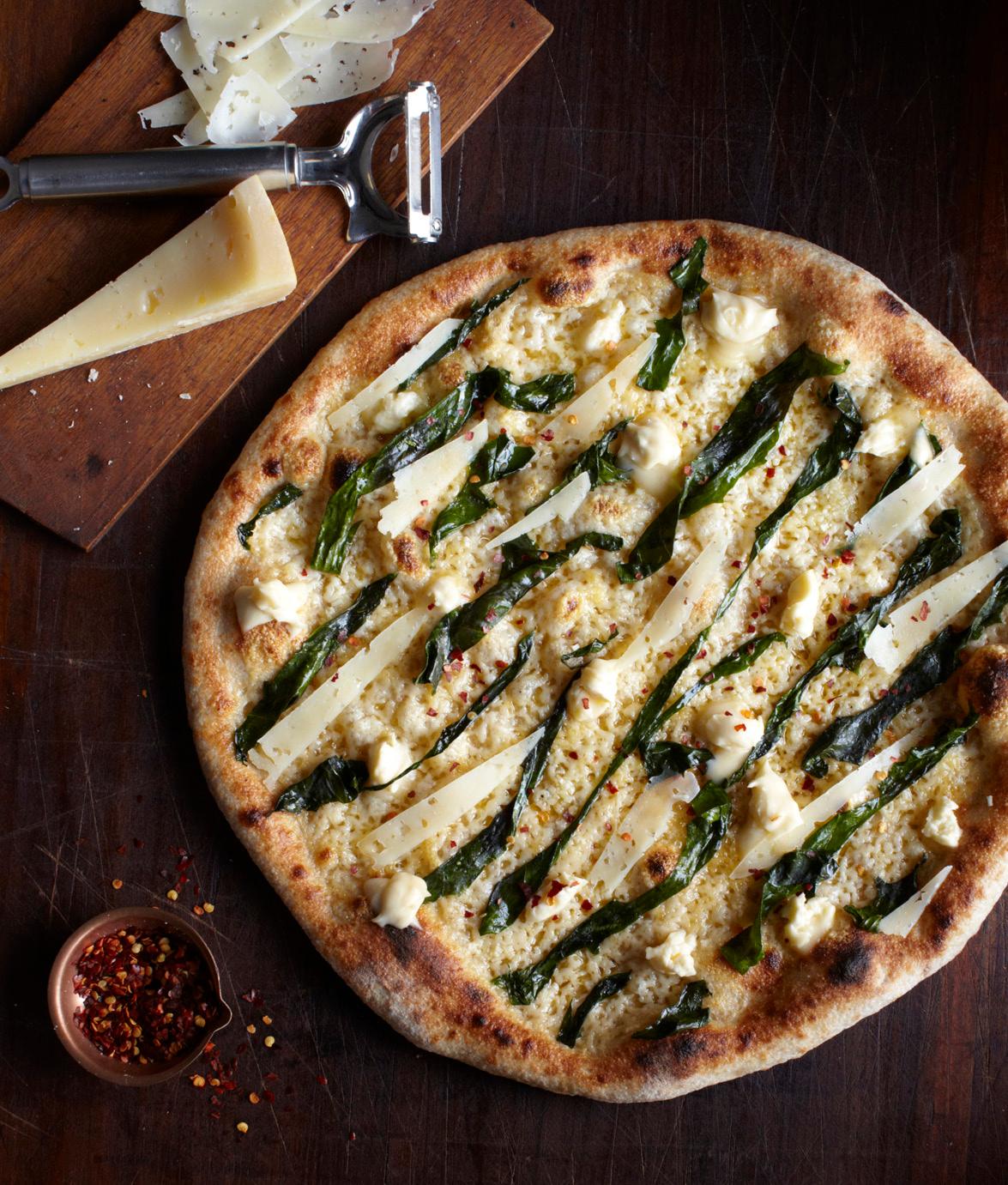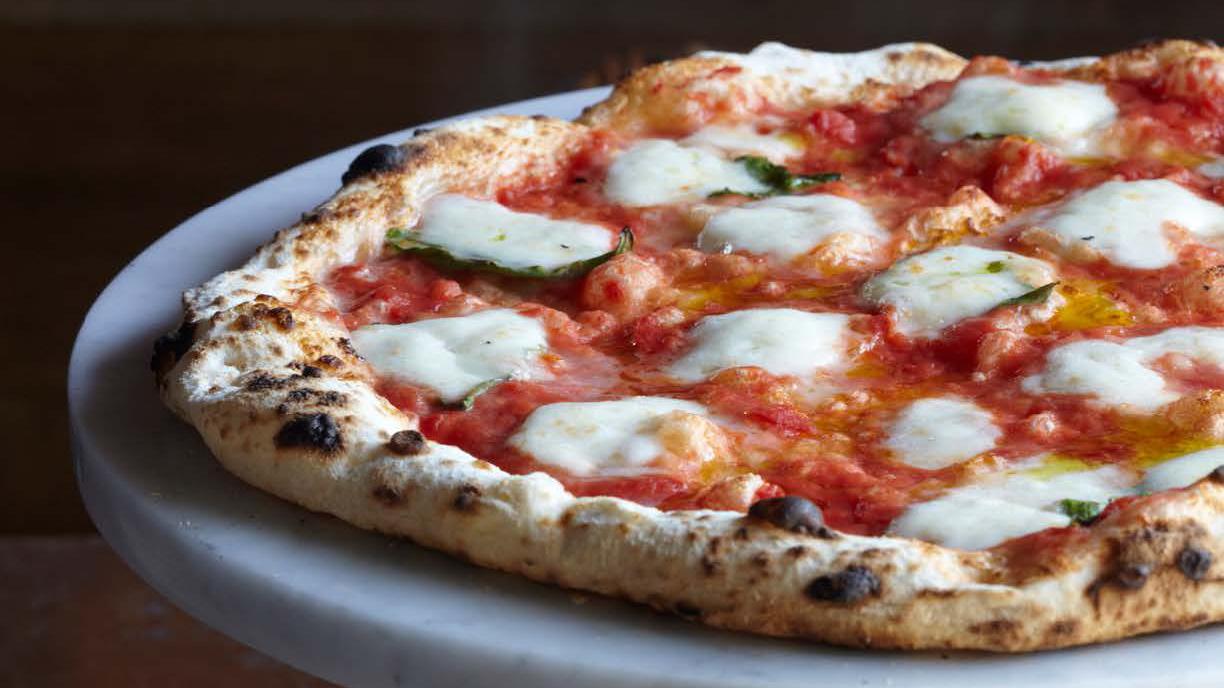Tony Gemignani's Neapolitan margherita pizza.
If you want to be the best, you’ve got to measure yourself against the best.
That’s why American pizza chef Tony Gemignani likes to compete. Otherwise, who’s going to tell you if your food’s up to scratch — or if you’re still getting better?
Gemignani’s category of choice is the authentic Neapolitan margherita pizza.
"Every bite takes you through a journey," he says. "You start with the dough that’s on the bottom of your tongue, and then it goes into the tomato sauce with the basil, and then you taste a little bit of the salt and the meltiness of the cheese. It’s a pizza that’s super simple, but at the same time it’s so complex."
Tradition dictates that you cook the margherita in an ultra-high temperature oven. It’s a 90-second bake, with an ultra-thin pizza dough that can be hard to handle.
After years of study, Gemignani finally put his technique to the test in 2007. He entered the World Pizza Cup in Naples — the kind of pizza competition that Americans just don’t win.

"At that time it was nearly 100 degrees in Naples," he says. "It was tented, [with] no air conditioning [and] six wood-fired ovens that were at 900 degrees. Just imagine being in the worst conditions ever. You're a sloppy mess. People are sliding their uncooked pizzas onto their pizza paddles, and they're falling off, they're football-shaped … It was kind of chaotic."
Everybody was messing up, and that included the local experts, cooks who came from long lineages of pizza-making. Gemignani says some of his competitors were being watched by their fathers and grandfathers — as if the pressure weren't already enough.
And here comes this American guy in the middle of it.
Gemignani had his own technique worked out, including raising the dough in wooden boxes, using a particular kind of mozzarella cheese and a de-seeded tomato sauce. His competitors were unimpressed, he recalls: "They hated it. They really wanted me to lose."
Gemignani's pizza went into the oven for just under 90 seconds, the regulated time limit. Then he took it to the judges to review. One judge — "leather face," he called her — grilled him every which way: What cheese did you use? How much sugar did you put in the dough? (None.) How much oil did you put in the dough? (None.)
He cut the pizza and served them each a slice. There were two slices left. Moments later, the judges declared that they wanted to try it again. This never happened — why would judges eat more of a single pizza when they eat more than 50 bites in a day? It was just that good.
Gemignani allowed himself to believe that he could have won second place. Maybe second. "Never first," he says. But that's just what happened: Tony Gemignani, the American, won the competition.
But before it was announced, one guy came to his table and told him not to get too excited. "It was one of the best moments, [but] it was a great moment that you couldn't get excited for," he says. "Ninety percent of people hated you won — good friends of mine, I thought. And then you saw the genuine people that were genuinely happy for you. So I couldn't get excited."
Gemignani and his friends left and partied at the hotel that night instead. And today? He's an 11-time world pizza champion.
Tony Gemignani is the author of "The Pizza Bible".
Update: A previous version of this story incorrectly said Tony Gemignani was from New York. He is from San Francisco.
